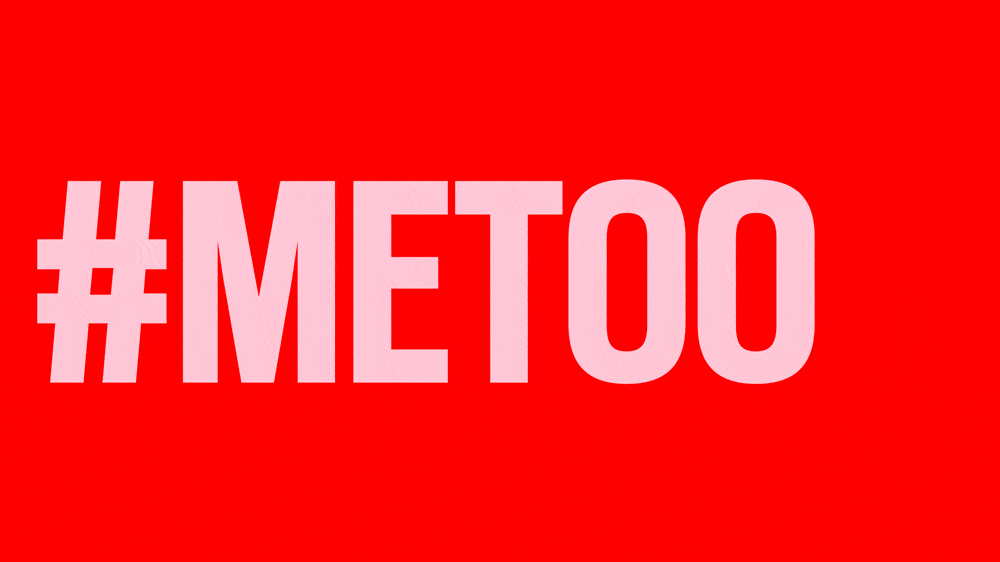[vc_row][vc_column][vc_column_text]
Following the allegations surrounding Harvey Weinstein, the hashtag ‘MeToo’ has taken over Twitter feeds worldwide, with thousands of victims of sexual harassment and sexual assault coming forward to show how prevalent the issue really is. But who does the campaign inherently leave out? And has it only served to paper-over some long-standing cracks.
An LGBTQ* Perspective
#MeToo is a step in the right direction, but it is just that: a step. It’s hard to admit that somebody has sexually harassed you, and harder still when that person is ALSO a woman, and has used the hashtag. It’s hard to open up about an experience that your closeted self isn’t
ready to answer questions about, aware of the heteronormative form they will take. But ultimately, it’s hard to explain all of this when you know that the #MeToo movement has had a powerful impact, providing
catharsis for survivors and a slither of understanding for everybody else about the magnitude of harassment.
You just hope that the next movement will be one you feel able to join.
Anonymous
[/vc_column_text][vc_raw_html]JTNDYmxvY2txdW90ZSUyMGNsYXNzJTNEJTIydHdpdHRlci10d2VldCUyMiUyMGRhdGEtbGFuZyUzRCUyMmVuJTIyJTNFJTNDcCUyMGxhbmclM0QlMjJlbiUyMiUyMGRpciUzRCUyMmx0ciUyMiUzRVRoaXMlMjBpcyUyMG5vdCUyMGElMjBtYWxlJTIwdGhpbmclMjBvciUyMGElMjBmZW1hbGUlMjB0aGluZy4lMjBUaGlzJTIwaXMlMjBhJTIwaHVtYW4lMjB0aGluZy4lMjAlM0NhJTIwaHJlZiUzRCUyMmh0dHBzJTNBJTJGJTJGdHdpdHRlci5jb20lMkZUaGVFbGxlblNob3clM0ZyZWZfc3JjJTNEdHdzcmMlMjU1RXRmdyUyMiUzRSU0MFRoZUVsbGVuU2hvdyUzQyUyRmElM0UlMjBzcGVha3MlMjBvbiUyMCUzQ2ElMjBocmVmJTNEJTIyaHR0cHMlM0ElMkYlMkZ0d2l0dGVyLmNvbSUyRmhhc2h0YWclMkZNZVRvbyUzRnNyYyUzRGhhc2glMjZhbXAlM0JyZWZfc3JjJTNEdHdzcmMlMjU1RXRmdyUyMiUzRSUyM01lVG9vJTNDJTJGYSUzRSUzQSUyMCUzQ2ElMjBocmVmJTNEJTIyaHR0cHMlM0ElMkYlMkZ0LmNvJTJGWjZ5UmhxME5NdCUyMiUzRWh0dHBzJTNBJTJGJTJGdC5jbyUyRlo2eVJocTBOTXQlM0MlMkZhJTNFJTIwdmlhJTIwJTNDYSUyMGhyZWYlM0QlMjJodHRwcyUzQSUyRiUyRnR3aXR0ZXIuY29tJTJGVElNRSUzRnJlZl9zcmMlM0R0d3NyYyUyNTVFdGZ3JTIyJTNFJTQwVElNRSUzQyUyRmElM0UlM0MlMkZwJTNFJTI2bWRhc2glM0IlMjBVTiUyMFdvbWVuJTIwJTI4JTQwVU5fV29tZW4lMjklMjAlM0NhJTIwaHJlZiUzRCUyMmh0dHBzJTNBJTJGJTJGdHdpdHRlci5jb20lMkZVTl9Xb21lbiUyRnN0YXR1cyUyRjkyMTY4NjI3Mzk2MTY4MDg5NiUzRnJlZl9zcmMlM0R0d3NyYyUyNTVFdGZ3JTIyJTNFT2N0b2JlciUyMDIxJTJDJTIwMjAxNyUzQyUyRmElM0UlM0MlMkZibG9ja3F1b3RlJTNFJTBBJTNDc2NyaXB0JTIwYXN5bmMlMjBzcmMlM0QlMjJodHRwcyUzQSUyRiUyRnBsYXRmb3JtLnR3aXR0ZXIuY29tJTJGd2lkZ2V0cy5qcyUyMiUyMGNoYXJzZXQlM0QlMjJ1dGYtOCUyMiUzRSUzQyUyRnNjcmlwdCUzRSUwQQ==[/vc_raw_html][vc_column_text]
Survivors Owe Their Story To Nobody
In light of the Harvey Weinstein allegations, much of the attention of social media has turned to an issue that remains pervasive not only in Hollywood but in the lives of women all over the world – sexual assault and harassment. Whilst there has been plenty of online discussion, one particular campaign has garnered more attention than any other: the trending hashtag #MeToo.
On October 15th, actress Alyssa Milano tweeted “If all the women who have been sexually harassed or assaulted wrote ‘me too’ as a status we might give people a sense of the magnitude of the problem”. She’s right. If we all did this, it might humanise the 1 in every 5 women statistic that gets thrown around so often.
So why, as the feeds of every social media platform became flooded by those two words, did I feel such a strong sense of despair and discomfort? Surely this was an inspirational show of solidarity amongst survivors? Had I internalised the taboo that surrounds open conversation about sexual violence? Was it just that hearing so many stories from women I know was too hard to swallow? Perhaps this was all true. However, while the women who were brave enough to share their experiences have nothing but my full respect and admiration, my main problem with this campaign is that they should not have to.
It soon emerged that the #MeToo campaign long outdated the hashtag. Activist Tarana Burke founded the campaign 10 years ago as a grassroots movement and online platform to provide victims with help, healing, and a space to share their stories – mostly in underprivileged communities where women are less likely to have access to rape crisis centres or councillors. Herself a survivor of sexual violence, Burke is a firm believer in what she calls ‘empowerment through empathy’, explaining that the times she found the “most safe space was when people empathised with my experience”.
The sharing of stories goes a long way in tackling the ‘shame, isolation and powerlessness’ so often felt by women dealing with these experiences. However, Burke herself acknowledges that “Me Too” was never designed for social media. It was not “built to be a viral campaign or a hashtag that is here today and forgotten tomorrow.” She remains optimistic that this online attention can act as “a tool for healing across the spectrum of survivors around the world” and “the start of a larger conversation”, but I am apprehensive about the campaign’s shift to social media.
In any campaign where success requires survivors to publicly open up about such personal experiences, there is an implication that the responsibility for addressing sex crime lies with the victims. It implies that this is a women’s issue and we should be at the forefront of the stand taken against it. The very phrasing ‘if all women’ suggests that if you care enough to want to change the toxic status quo we find ourselves in you owe the world your story, and that by not sharing you are somehow letting other women down.
Survivors owe their story to nobody. Whether they choose to tell their story or not, they are justified.
Connie Lawfull[/vc_column_text][/vc_column][/vc_row]

